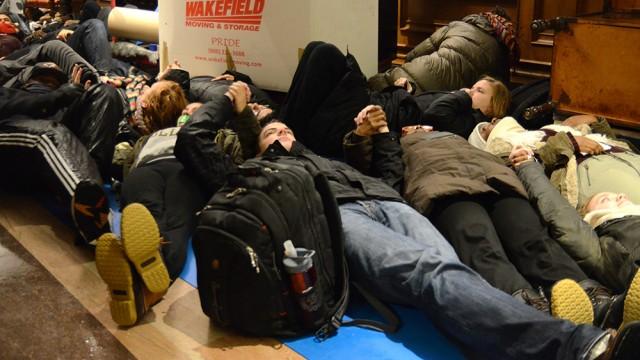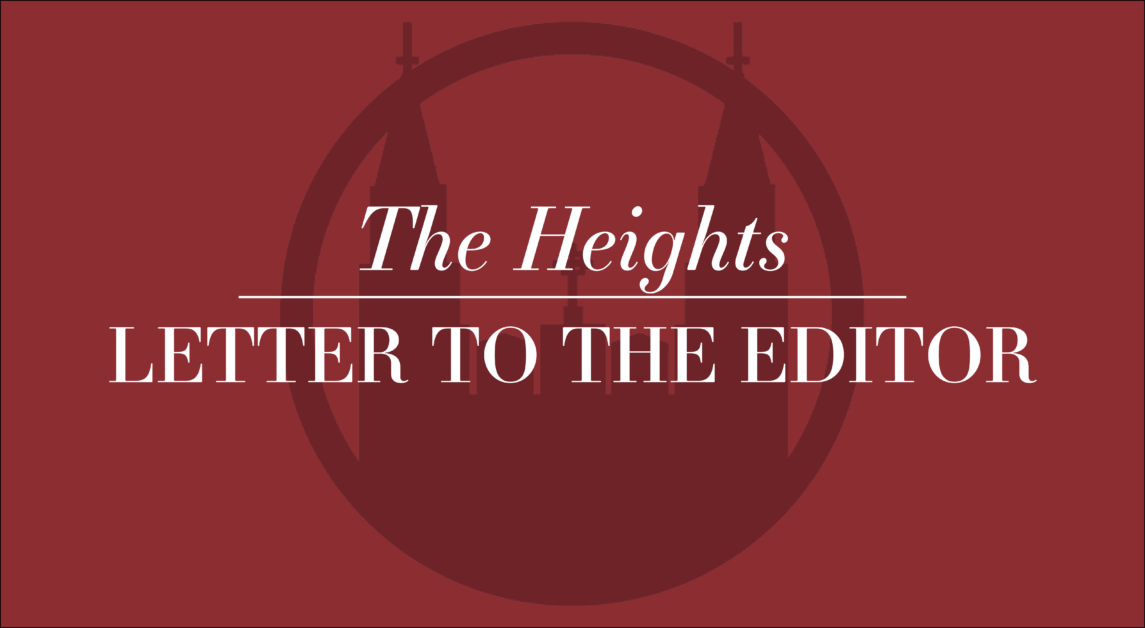To the Editor:
This past winter, the Boston College community struggled to come together on the topic of racism. Boston College students, who staged an unapproved demonstration in St. Mary’s Hall, were disciplined after giving voice—or rather silence—to an issue that many of us care deeply about. The actions of our fellow students were rooted in the belief that their collective voice could contribute to a conversation about how to better Boston College. In doing so, these students were living out an idea that is essential to Boston College’s identity: to take our educations and values—discovered and explored in the traditions of Jesuit, Catholic education—to the world stage, and to trust that they mean something. The world we are taught to challenge, when necessary, does not exclude Boston College.
The punishing of students was hopefully an isolated incident. Despite this initial response, our University was able to find a path to constructive discourse. In January, the Office of the Provost and the Jesuit Institute hosted the event, “Race in the U.S.A.: Expectations, Concerns, and Hopes in 2015”. In April, the UGBC held the “AHANA Faculty Diversity Panel and Dinner”. And in August, the Office of Student Affairs announced a new educational program, “Mosaic”, which introduced first-year students to topics of identity including race. While these efforts were not perfect, they presented opportunities for students, faculty, and administrators to engage in dialogue about how our society and University could be better.
We as the Executive Council of the Undergraduate Government of Boston College place a high value on the free expression of ideas and therefore applaud the intentions of our community in executing these programs. That being said, dialogue does not exist to provide a refuge from reality. Our collective failure to turn constructive conversation into constructive action is the reason we continue to work within a polarized framework; the administration is again threatening students with punishment, while many students are losing trust in their ability to make necessary change through University channels. Community members watching this public debate from the sidelines feel increasingly pressured to choose a side, effectively making this issue more about community politics than about the true issues at hand.
In the meantime, our University continues to exhibit evidence of institutional racism, or at least institutional inequality. For instance:
There is not a single AHANA Vice President, meaning that when top-level administrators meet to make institutional decisions, only white voices are heard
As of the fall of 2014, of all 818 faculty members at Boston College only 125 (15.28%) identified as AHANA
There are policies that hold back honest dialogue; members of Eradicate Racism were told that their group will face disciplinary action if they choose to demonstrate again without a permit, yet unregistered groups such as Eradicate Racism are not allowed to apply to demonstrate under BC’s free expression policies (Note: As of Monday, we were informed that the demonstration policy may be changed at some point in the future).
To address the above issues, as well as other race-related concerns, we call on the University to create a comprehensive action plan, much like Brown successfully did in 2006 and then revisited in 2015. We would like to see such a plan by the 19th of January as we begin our next semester. This plan should include timelines for both short and long-terms goals, as well as an explanation of BC’s financial commitment to this project, so that we as a community can hold ourselves accountable. While the Undergraduate Government of Boston College has proposed various solutions to these issues, we do not presume to have all the answers. To assist the University in creating an action plan, we will host a University-wide event to discuss what our community believes to be the gravest problems, as well as actionable solutions to those problems. We cannot execute this event alone; over the next few weeks, we will be reaching out to administrators, academic departments, individual professors, University offices, as well as our peers to jointly organize a public event that will allow this conversation to happen in a productive way. Together, we can forge a new path towards a stronger, more inclusive, and intellectually-enhanced community.
We have open meetings every Sundays at 6:30PM in Fulton 511 and our office is Carney 106. And of course, we encourage any member of the BC community to reach out to us at [email protected] or [email protected].
The 2015-2016 Executive Council of the Undergraduate Government of Boston College:
Thomas Napoli, President
Olivia Hussey, Executive Vice President
Afua Laast, VP of Diversity and Inclusion
Sloan Renfro, VP of Student Initiatives
Russell Simons, VP of Student Organizations
Nick Crain, VP of Financial Affairs
Cindy Chen, VP of Communications
Jono Keedy, Co-Director of ULA
Karryn Christiansen, Co-Director of ULA
James Kale II, Chair of the AHANA Leadership Council
Nick Minieri, Chair of the GLBTQ Leadership
Featured Image by Arthur Bailin / Heights Photo









